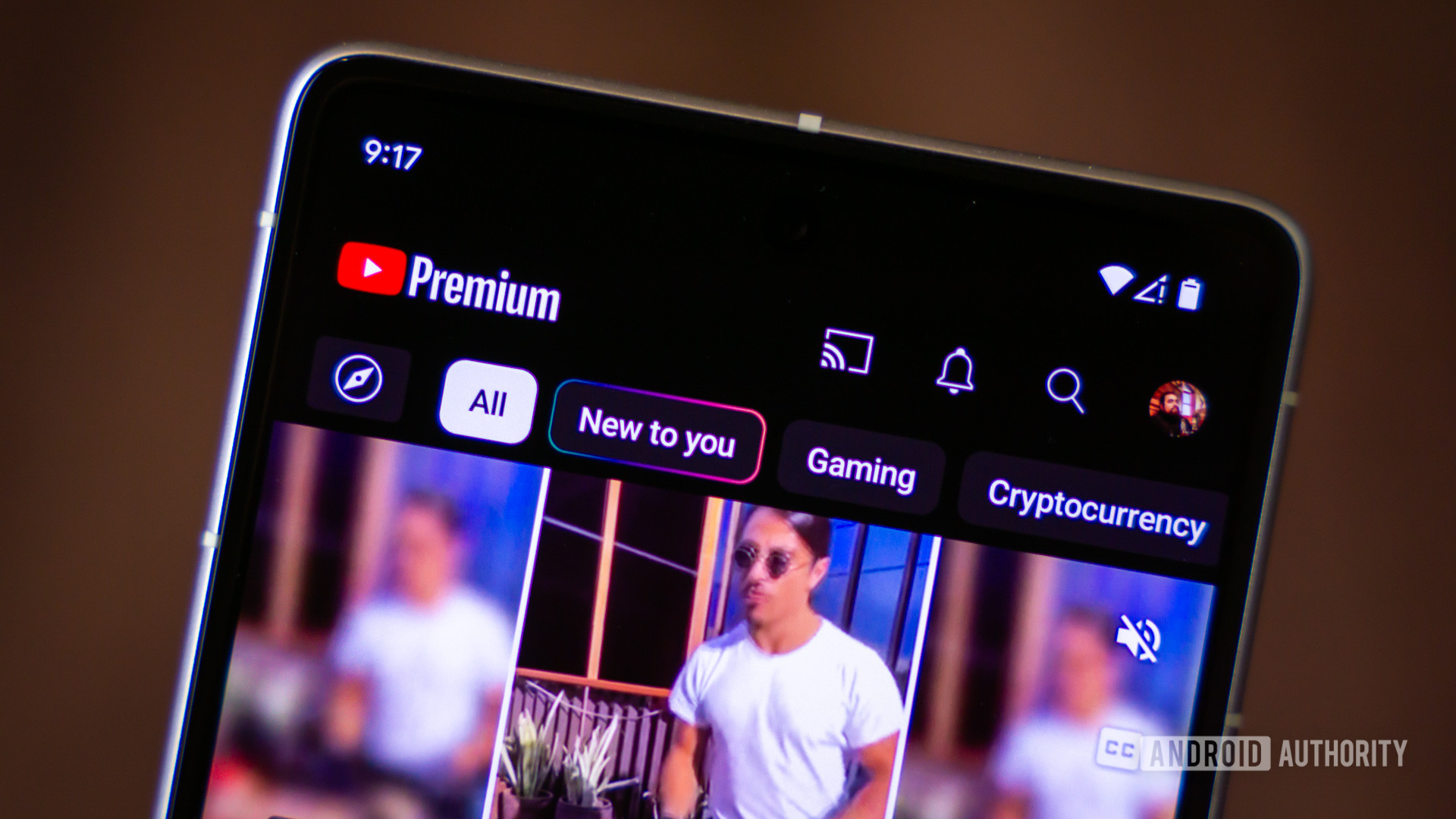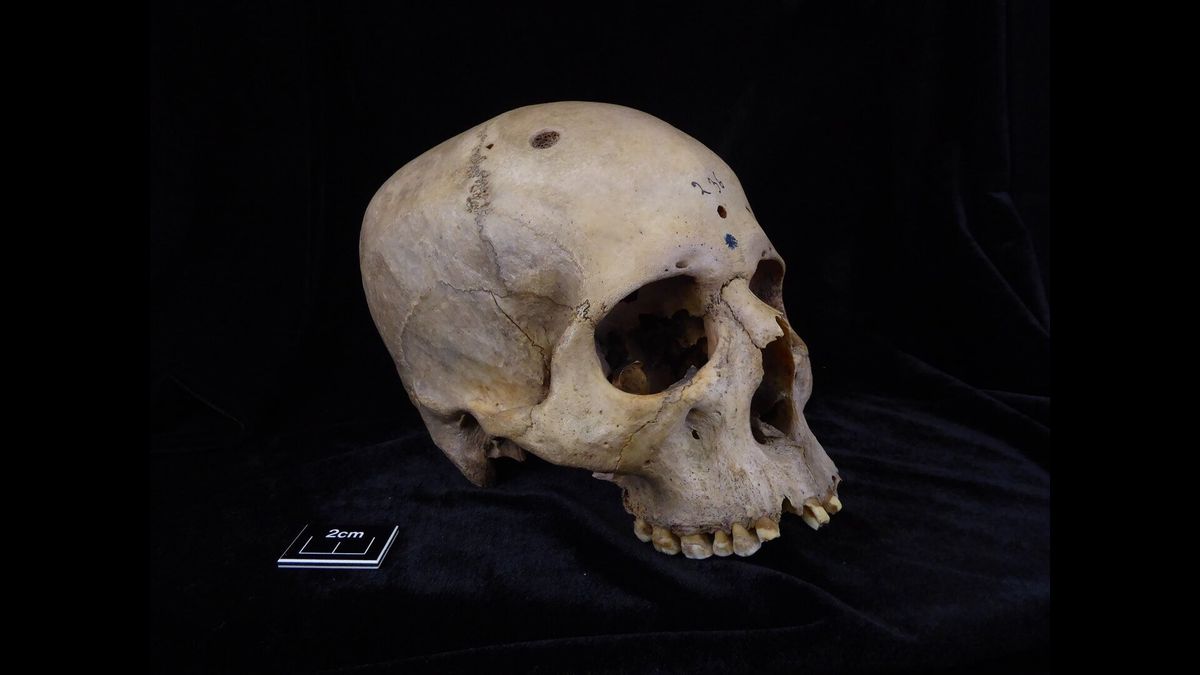“A lot of people have told me that I don’t look someone who has cancer. There’s obviously no way to really tell if someone has cancer or not and it’s a hard comment to respond to because you do think, ‘What do you expect someone with cancer to look like?'”
This is a question that 24-year-old Sydney Towle is challenging her 550,000 online followers with as she shares her personal experience of bile duct cancer on TikTok and Instagram. Towle had been diagnosed with the rare disease, that typically affects people over the age of 70, in August at the age of 23. She was swiftly put through treatment.
Indeed, with her youth, West Coast glow and long blonde hair, , LA-based Towle looks nothing like the stereotype of a seriously ill patient. These pre-conceived notions about what a cancer patient looks like are something that Towle has had to grapple with.
The social media marketer wants to show the world, through her chirpy TikTok posts, that rare cancers don’t discriminate and can affect the young and otherwise healthy too.
Sydney Towle
“A lot of people have told me that I don’t look like someone who has cancer. I haven’t lost hair because I do the cold capping therapy to prevent hair loss, so that may be why, but I do find those comments very interesting,” Towle told Newsweek.
“With a lot of invisible disabilities and diagnoses, it can be hard to tell if someone is struggling unless they openly talk to you about what they are going through,” she continued.
While Towle isn’t necessarily hurt by the comments, she feels that that they shine a light on how many people remain ignorant about who can develop cancer and why.
The social media manager for a gaming company was given the diagnosis of cholangiocarcinoma, also known as bile duct cancer, in August.
“I’d only ever heard of the more common cancers, like breast cancer, but this form of cancer is extremely rare. Even when the doctors told me that I could have bile duct cancer, I thought that there’s no way I’m the one in the mere thousands of people that get this diagnosis,” Towle said.
Around 8,000 people are diagnosed with bile duct cancer each year, according to the American Cancer Society.
Towle had spotted a lump on her abdomen earlier this year, but thought it might be a hernia resulting from the sports and activities she did in her free time—of which hiking, swimming and running were her firm favorites.
Unconcerned, Towle decided to ignore the lump. However, after experiencing breathlessness and weakness she consulted a doctor and was diagnosed at the end of summer following an ultrasound, an MRI scan, a biopsy and genetic testing.
“I was in shock and I still am in a kind of shock. I think that I heavily disassociated, I was in such shock that I did not cry. I think that it was definitely a shock response or a trauma response,” she said.
But while Towle was initially numb, her family and close circle of friends cried upon hearing the news and an inescapable fear then cornered her. A quick internet search informed her that on average, bile duct cancer patients have just a five-year relative survival rate of 24 percent.
To date, Towle’s doctors and consultants have stayed rather quiet on the state of Towle’s prognosis and the stage of the disease. She told Newsweek that this is because she’d been diagnosed fairly recently, and also because bile duct cancer is rarer in young people and as a result trickier to make such assessments for. Yet Towle’s goal is clear, she wants to get better, which to her comes in the package of being totally cancer free, but she’s being careful not to put pressure on herself or set any expectations.
As Towle began to grapple with her diagnosis, with medical appointments and treatment dates starting to fill up her life, she sought solace online. She started to share short video diaries that shine a light on living with a rare cancer in your early 20s, and has been overwhelmed by the response.
The social media manager had already been well acquainted with TikTok and Instagram, but has gained hundreds of thousands of new followers since opening up about her diagnosis.

Sydney Towle
“Every time I post a video I’m in shock. The amount of people that have reached out and sent me very long messages telling me I’m inspiring them to deal with their own issues or a family member’s health issues is just crazy to me,” she said.
“I started posting online because it felt like journaling, it was just me sharing my thoughts and it’s wonderful that this is actually helping other people,” she added.
Despite the digital love and support Towle can’t help but turn back to the recurring comment that keeps seeping through her social media notifications—that she doesn’t look like she has cancer.
This is one of the main reasons why Towle is keen to raise awareness about the disease and reject existing stereotypes that it only affects older and less previously fit or healthy people.
So far, her efforts appear to be working and her audience is growing increasingly engaged. Towle’s large following watched as she delivered the recent news that the chemotherapy she’d started back in early September had not reduced her tumors to the extent that she and her medical team had wanted.
Towle had been undergoing two different forms of treatment—one being a non-FDA approved trial drug—every week, with a break on every third week ever since she was first diagnosed.
She now has to have surgery to remove the left half of her liver, her gallbladder and her abdominal lymph nodes after the satellite tumors orbiting the tumor in her abdomen continued to grow, in spite of the pressure of intensive chemotherapy and immunotherapy.
Despite suffering from anxiety for most of her adult life, Towle has desperately tried to keep her mind positive and her emotional state calm in the leadup to the daunting January procedure.
“The doctors haven’t said what they think is going to happen, I hadn’t even been given a cancer grade, so I am just going with the flow. I don’t hold expectations of what I think will happen,” she said.
“I try not to think too hard into the future because if I do I get super anxious and start thinking of the worst case scenario. Constantly staying busy and spending time with my friends and family has been very helpful,” she added.
What Is Bile Duct Cancer?
Bile duct cancer is found anywhere in the bile ducts, small tubes that connect different organs, that are part of the digestive system.
Dr. Domenech Asbun is a surgical oncologist at Miami Cancer Institute who specializes in minimally invasive surgical procedures to treat liver, pancreatic and upper gastrointestinal diseases.
“Unfortunately, treatment for these cancers can be tough, as they can be aggressive tumors,” Ashbun told Newsweek. “Even diagnosis can sometimes be difficult. Once a diagnosis is made, the best treatment for patients expecting a cure must involve surgery. There is a role for chemotherapy, however, we haven’t seen this modality be as effective in comparison with other cancers.
“Symptoms may include abdominal pain, weight loss, feeling weak, but, these are not diagnostic.”

Sydney Towle
Towle’s experience matches up to what the surgical oncologist claims is what the overwhelming majority of bile duct cancer patients experience. Towle, who is originally from Florida, rarely feels much physical pain as a result of her disease. The mildness of her symptoms and her absence of physical pain, in contrast with what’s typically associated with serious illness, dissuaded her from seeing a doctor sooner.
While her bubbly personality and simple words of advice —”It will pass” and “You will be OK” feature often in her social media posts—have revitalized many viewers, Towle herself has benefitted from what her followers have had to say.
“I’ve had many messages from people who were, or know someone who was, in the advanced stage of bile duct cancer or another rare cancer,” she explained. “They all had surgery and have been in remission for years. This gives me so much hope that there are success stories, I would have handled the situation differently if I hadn’t been online.”
“It makes me feel like things will be OK, and that I am not alone,” Towle added.
Although she has made plenty of friends online in recent months, she’s struggled to keep up with her real-life friends and has wondered if she’ll ever regain the energy to hang out with them with as much vigor as she used to. Towle also shared that she’s struggled to find young people, in the real world, who can relate to what she’s going through.
Still, keen to flip the narrative on rare cancers, Towle plans to travel to Australia and New Zealand once she’s overcome the disease, which has taught her not to take time for granted.
“I’m definitely way more likely to do the things that I’ve always wanted when I feel better. A lot of people put off the things on their bucket list because they assume they’ll have time and I’m definitely not assuming that I have time anymore,” she told Newsweek.
As much as she thinks forward to her future, Towle has also dwelled on her past. Her biggest regret is not consulting a doctor as soon as she began experiencing the mild symptoms associated with bile duct cancer, and is hopeful that raising awareness of her illness and eventual diagnosis could save lives.
“”I highly recommend seeing a doctor as soon as you feel something is wrong, even if like me you are young and felt otherwise healthy,” she said. “If I had listened to my gut instinct I probably could have gotten treatment much sooner—I want to do as much with my life as possible.”
Is there a health issue that’s worrying you? Let us know via [email protected]. We can ask experts for advice, and your story could be featured on Newsweek.
Uncommon Knowledge
Newsweek is committed to challenging conventional wisdom and finding connections in the search for common ground.
Newsweek is committed to challenging conventional wisdom and finding connections in the search for common ground.

Rachel Carter is a health and wellness expert dedicated to helping readers lead healthier lives. With a background in nutrition, she offers evidence-based advice on fitness, nutrition, and mental well-being.








